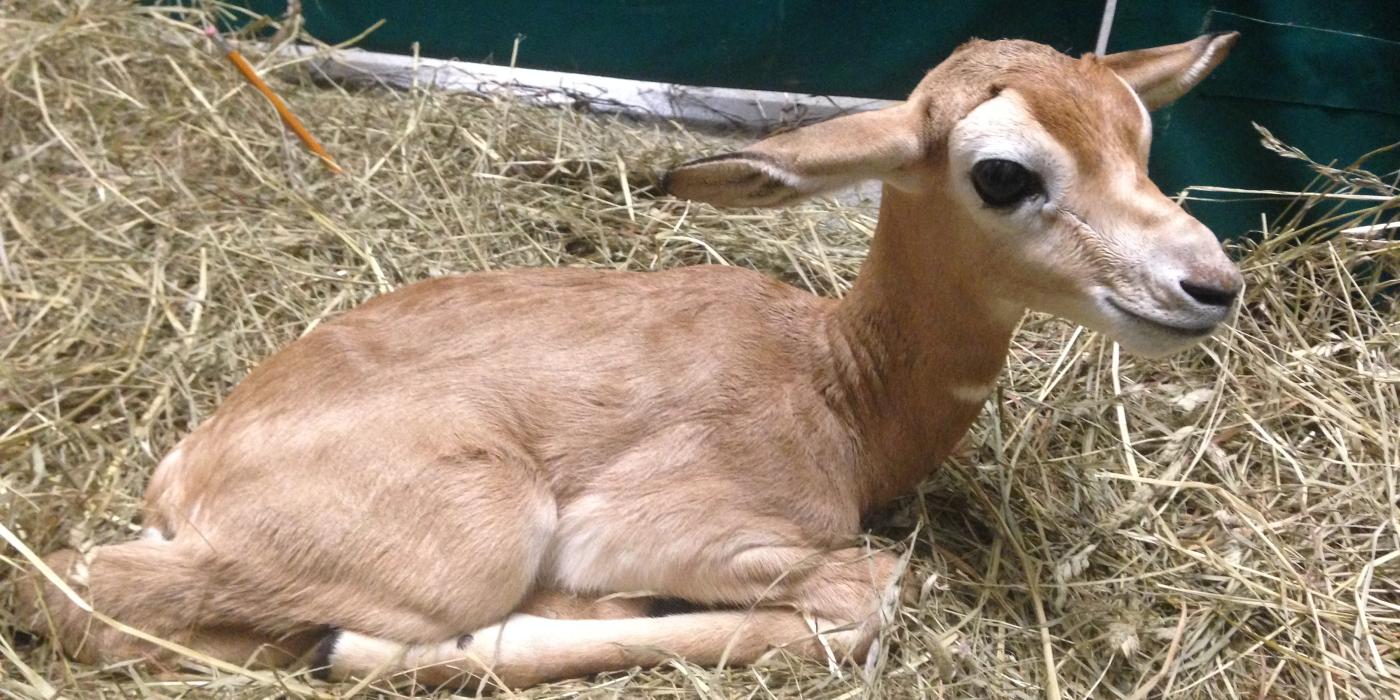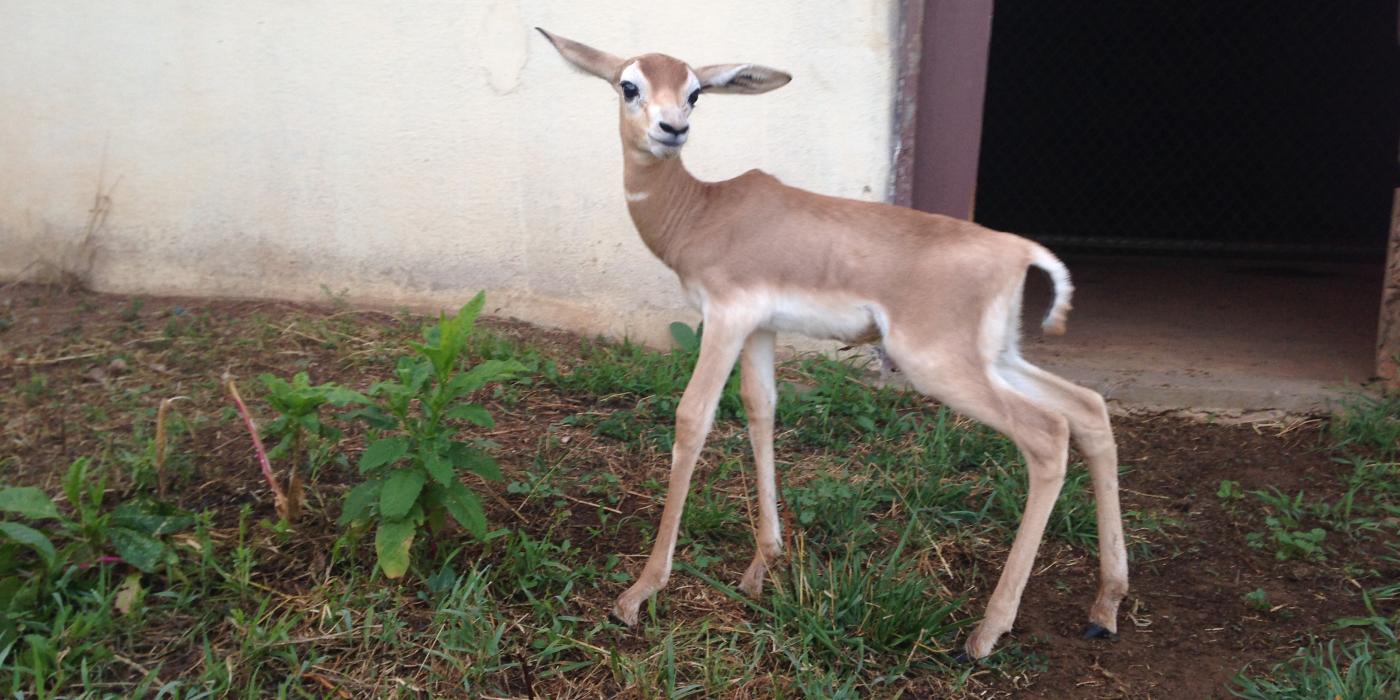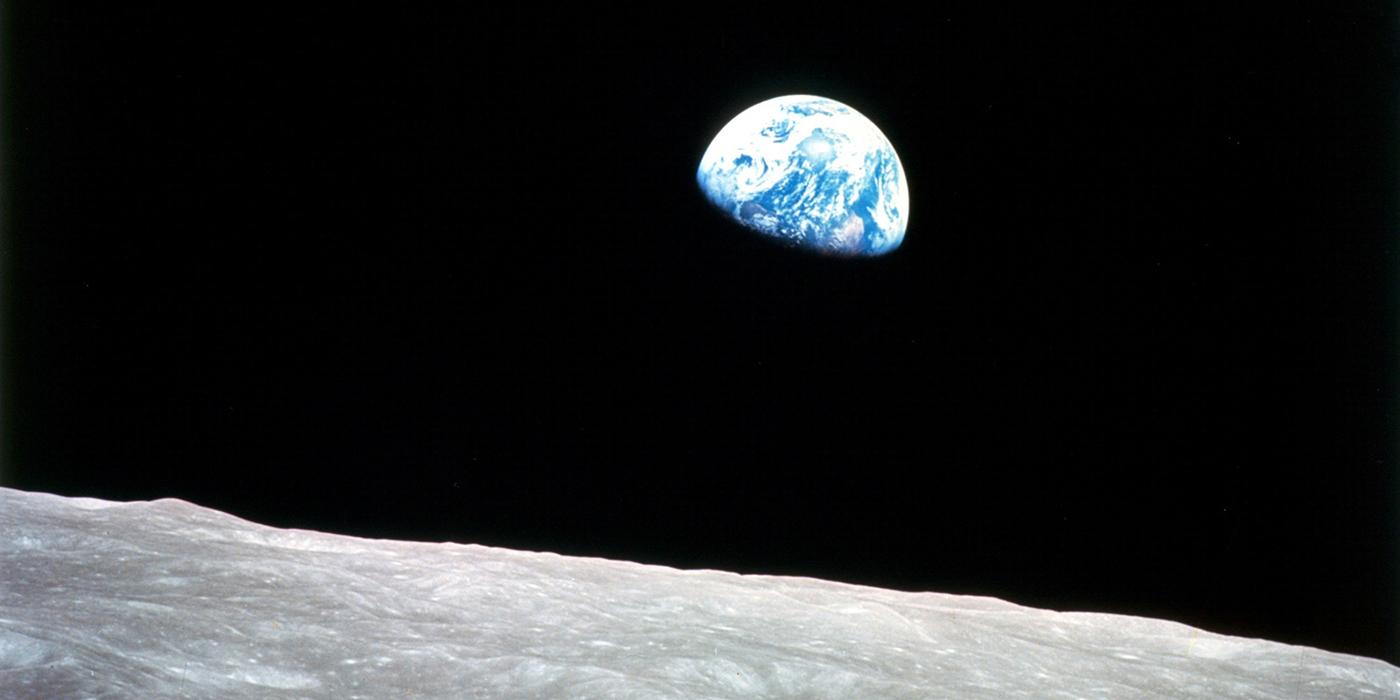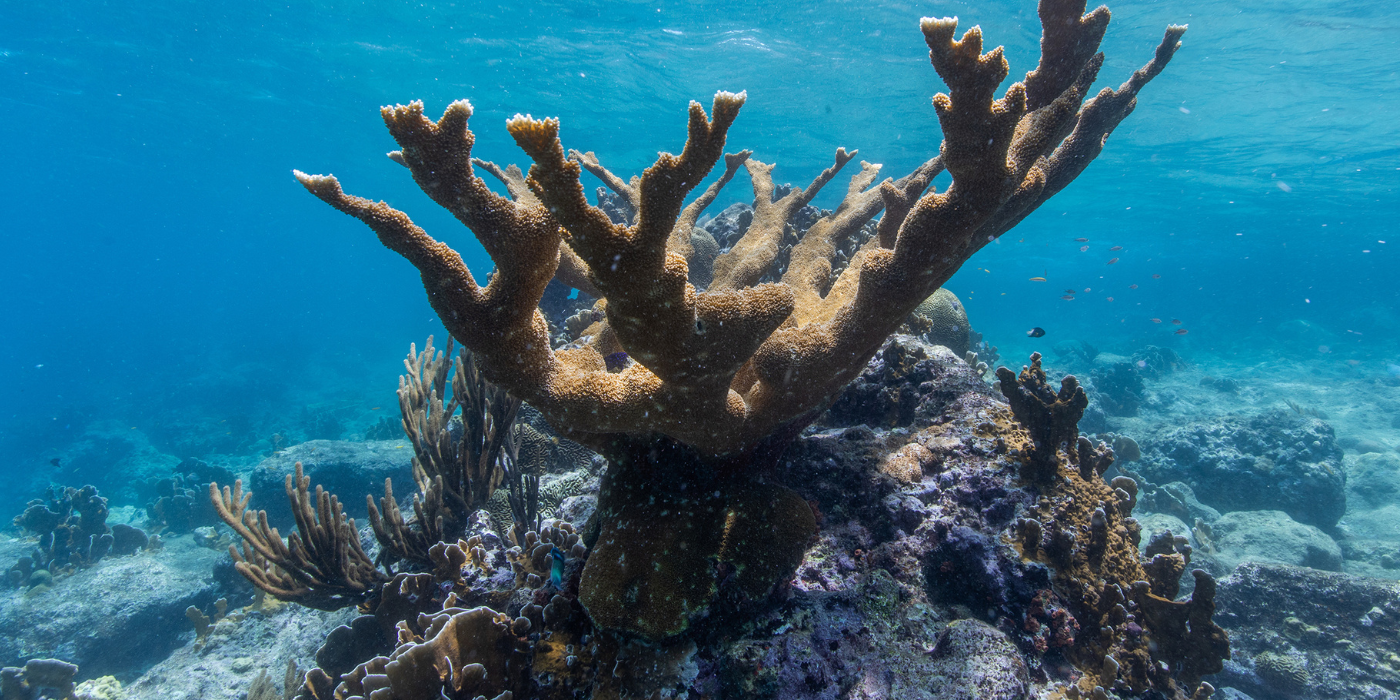Keepers Hand-Raising Dama Gazelle Calf at Smithsonian Conservation Biology Institute
Animal keepers at the Smithsonian Conservation Biology Institute (SCBI) are hand-raising a dama gazelle calf. The male calf was born July 4. The animal care team began monitoring the calf’s mother, Sara, a first-time mom, after she showed signs of labor. After watching her for much of the day, she delivered the calf that evening, but suffered a severe prolapsed uterus. Veterinarians attempted to correct the prolapse, but it was too severe to be replaced. The animal care team made the decision to humanely euthanize Sara after it became clear that her prognosis was poor and her condition was rapidly declining.
The calf was immediately transferred to the veterinary hospital at SCBI. He is being bottle-fed by keepers five times each day. In the coming weeks, he will be introduced to the herd. If he is reintegrated into the herd, that will allow him to learn species-appropriate behavior from other dama gazelles and about the social dynamics of living in a herd. Keepers will train him to come to them for bottle feedings every day using a clicker. When the calf hears the clicker he will know that a keeper has a bottle for him and approach them to feed.
SCBI is currently home to nine dama gazelles. Three of the gazelles are female and six are male. Of the six males, three are newborn calves.
Related Species:





